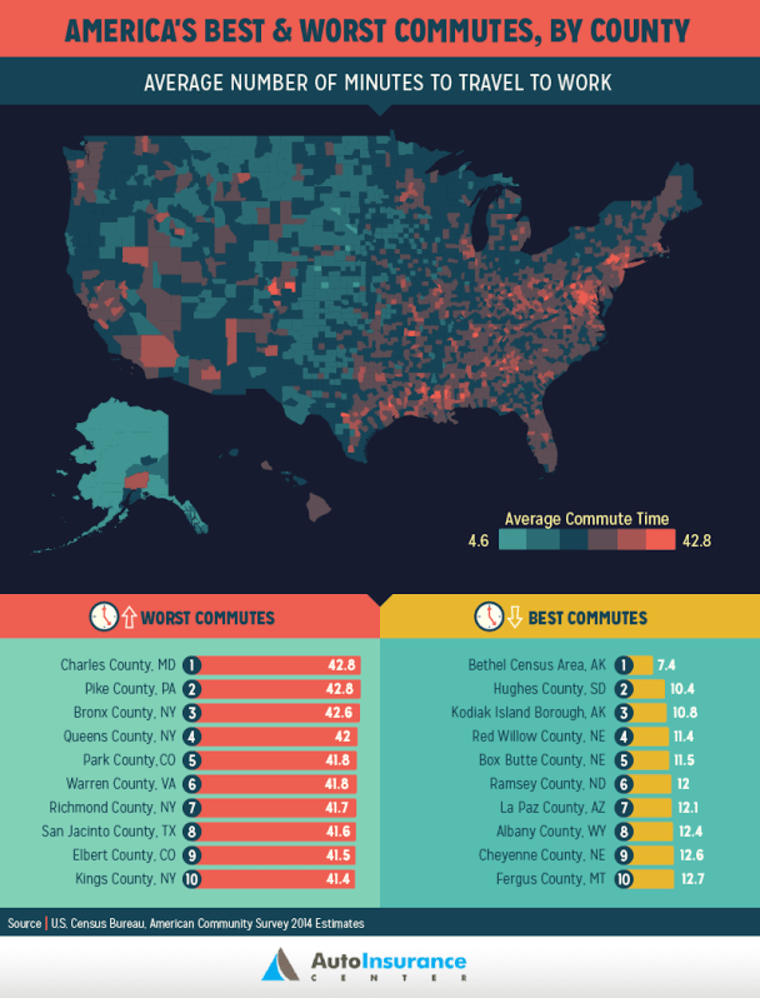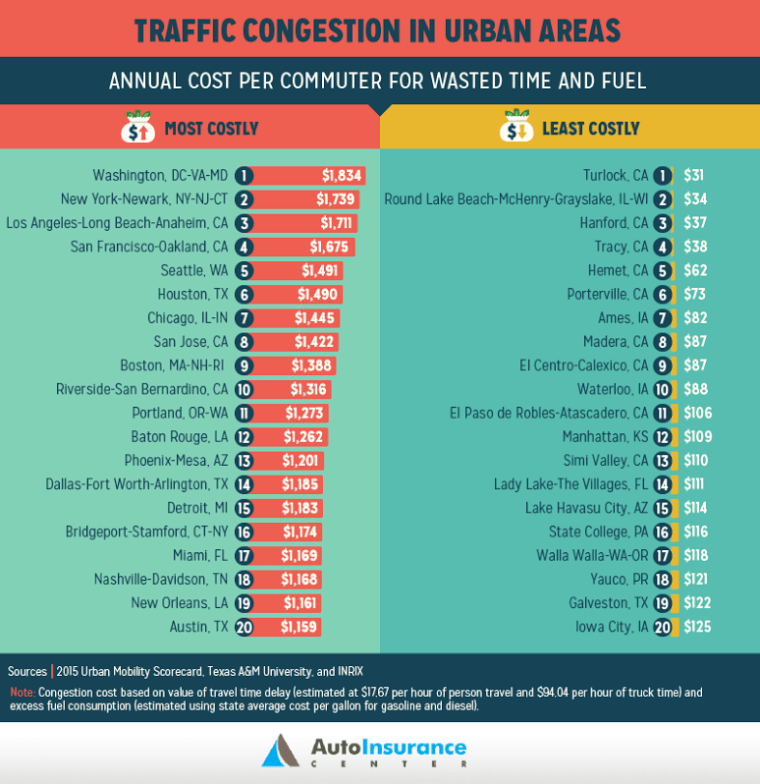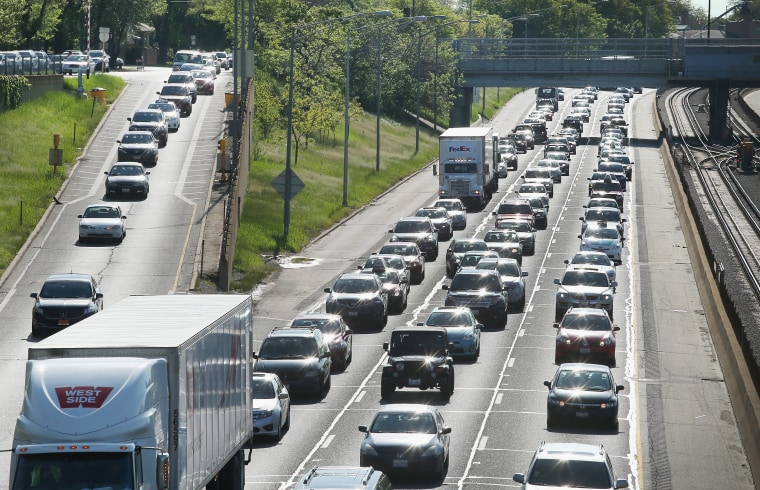It turns out that being stuck in traffic isn’t just a waste of time; it’s a waste of money.
A new report from AutoInsuranceCenter.com found that 86 percent of Americans commute to work, with traffic delays costing them an average of $960 per year. And while sitting in traffic, a yearly average of 19 gallons of gas is eaten up — amounting to about 163 million barrels of crude oil per year.
Time is money, and commuting is squandering that, too. The study, which analyzed data from the U.S. Census Bureau, the 2015 Urban Mobility Scorecard, the INRIX 2015 Traffic Scorecard, and the U.S. Energy Information Association, found that the average American commuter loses 42 hours per year to idling in traffic.
Auto Insurance Center ranked the best and worst U.S counties for commuting, and separately, ranked the best and worst cities.

Charles County, Maryland turned up as the worst county for commuters, with the average commuter spending 42.8 minutes each workday driving to work. Bronx and Queens counties in New York are close behind, followed by counties in Colorado and Virginia. Topping the list of worst cities was Washington, D.C., with the average commuter losing $1,843 a year. The NYC/Newark, New Jersey/Connecticut region took second place, costing commuters $1,739 a year, and L.A./Long Beach/Anaheim in California came in third with an a yearly average of $1,711.
“Being that I'm a native Californian, I was not surprised about California ranking so high on the list of [most expensive] commutes,” said Justin Loera, Senior Insurance Market Analyst for AutoInsuranceCenter. “I was, however, surprised that D.C. topped the list.”
The least costly cities to commute in, according to the report, are Turlock, California, which costs the commuter just $31 per year, followed by the Round Lake Beach-McHenry-Grayslake regions of Wisconsin and Illinois at $34 per year.

Loer noted that the report did not dig into the issues causing commuter congestion, but said that certain obvious factors like density and population play a major role.
Genevieve Rojas, a California resident who works in marketing, said that she drives from Ontario to Malibu every workday, a commute that takes at least two hours and up to three and a half hours with traffic.
"I am driving a minimum of 20 hours a week, which is a part-time job in itself," said Rojas. “What sucks about this commute is the amount of time wasted on the road, the higher risk of becoming a traffic accident statistic, the diminished quality of life, and time usage of my morning and night. I barely have time to walk my dogs by the time I get home and I don't have any leisure time. And my heart breaks at the eco footprint I am leaving.”
Fortunately, the stressful and costly problem of commuting is one that is being taken seriously by many companies. Brie Reynolds, senior career specialist at FlexJobs.com, a site that features telecommuting, part-time, freelance, and flexible job posts says that increasingly, companies are allowing employees to telecommute.
“We're seeing more and more companies becoming comfortable with people working from home,” said Reynolds.
Large companies, such as Dell, Amazon, and IBM have implemented telecommuting programs, Reynolds said, a move that is encouraging smaller companies to do the same.
“When a huge company like Dell — which wants to have half its workers working from home by 2020 — [allows for telecommuting], it really motivates smaller companies to do the same, because they’re competing for that talent,” she said.
From 2014 to 2015, FlexJobs saw telecommuting job listings increased to 36 percent, up from 26 percent increase from 2013 to 2014. Reynolds said the company expects to see a greater percentage this year.
